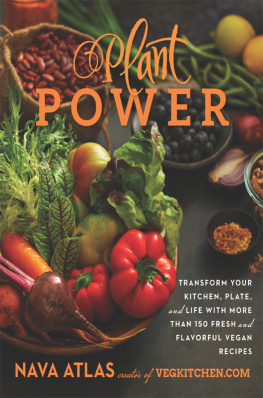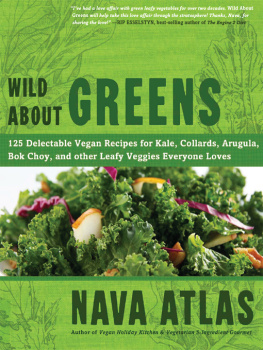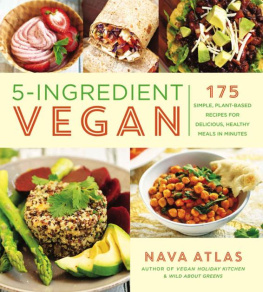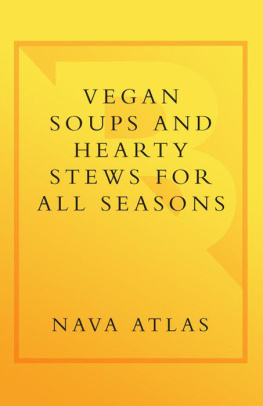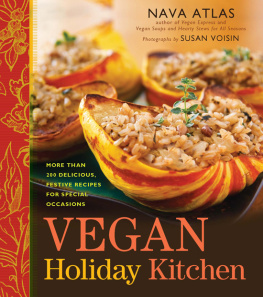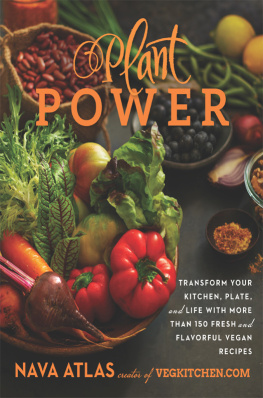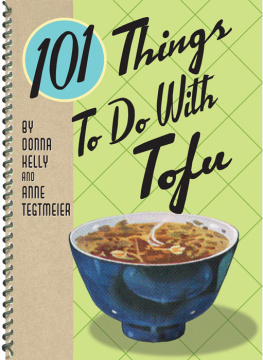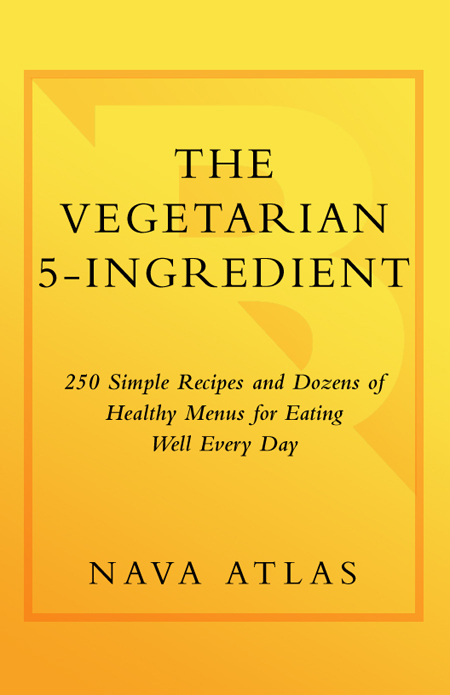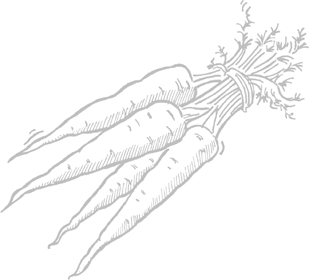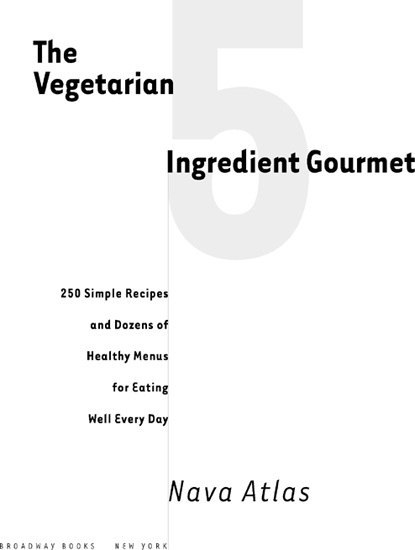It's ironic that a book on simplified cooking took longer to write and required more eagle-eyed editors and talented hands than some of my other books put together. I'm grateful to everyone who took part in this project, helping to bring it to a more satisfying fruition than I could have imag-ned.
Thanks for help in polishing the manuscript in its early states go to Carol Wiley Lorente and Jen Jeglinski. Thanks to Jen also for sharing a family recipe for creamy zucchini soup. The origin of this recipe is cred-ted to Helen Horvath. I'd also like to thank a few others for sharing ideas that became recipes in this book. They include my father-in-law, Arie Tabak, for his simple but excellent Israeli salad; Susan Webb (who introduced my family to many simple child-friendly dishes) for her apple recipes; Pam Tate, for her yummy hot bean dip; and my son, Evan Tabak. Somewhere about midway through this long project, Evan (seven years old at the time) invented a pear and mango smoothie. Even as I write this, pears and mangoes ripen on my kitchen counter as this smoothie is still a favorite of ours.
My sons Evan and Adam Tabak and my husband Harry Chaim Tabak, as well as our extended family, have been a constant source of sustenance and inspiration. It's a pleasure to cook for such an enthusiastic and appreciative group of people.
The staff at Broadway Books has been most impressive, even at a point when I am just beginning to know them. Many thanks to Rebecca Holland for so ably overseeing the various components of this project, Pei Loi Koay for the fabulous interior design, Patti Ratchford for the beautiful cover, and Karen Fraley for the final, fine-tooth-comb copyedit. I'd also like to acknowledge editorial assistant Anne Resnik, always helpfu and willing to go the extra step with grace and good humor.
Finally, my heartfelt thanks to my editor, Jennifer Josephy. Though we've worked on several projects together, her bringing this one to Broadway Books has truly been a gift. I feel fortunate to have an editor who has been such a steadfast supporter and role model, and so, this book is dedicated to her.
Ask any time-crunched cook what they look for in a meal, and the words fast and easy will likely come up. I'd like to add one more word to the busy cook's vocabulary: Simple. It's a relaxing concept that goes beyond easeafter all, a soup can have 25 ingredients that need merely to be tossed into the pot and so would be considered easy. Simple implies a paring down, getting to the essentials.
To my mind, simplicity does not by any means imply mindlessness; rather, I'd go along with Walt Whitman's view that simplicity is the glory of expression. By focusing on a few high-quality, well-chosen ingredients, I can enjoy a simple meal as much as a more elaborate one.
My website, In a Vegetarian Kitchen (www.vegkitchen.complease visit!), has been a wonderful forum through which to communicate with readers. My core readership seems to be busy, conscientious people who want to eat well despite feeling time-crunched. They appreciate varied, low-fat meals that don't take a lot of time to prepare. Vegetarian Express is the book that visitors write to me about most frequently. Many readers, especially working parents, tell me that this book of quick and easy menus has been a lifesaver for them. I co-wrote it when my two sons were toddlers. At that time, I was certain that when they got a little older, I could return to the more elaborate meal preparation I enjoyed in the years B.C. (Before Children).

This never happened; life continued busier than ever. Between caring for a home, meeting my work deadlines, parenting two curious and active boys (with endless activities that bump right up against dinnertime), and finding the odd moments to spend with my husband, extended family, and friends, I found myself craving simpler meals more than ever.
Being a devotee of good, healthful meals, I began developing recipes that are pared down to their very essence, but remain splendid. And while cooking this way most often results in quick meals, the more important criterion is simplicity. I did not want to leave out favorite ingredients because they aren't fast foods. There are those rare days, like stormy Sundays, when dinner doesn't have to be on the table in a half hour; on days like those, I don't mind baking a butternut squash or a casserole, cooking barley, or simmering a pot of beans for several hours, if I'm free to do other things while they cook. In fact, the heady aromas of long-cooking foods are among my favorite comforts. While I wouldn't be so foolhardy as to suggest this kind of cooking for weeknights at 6 P.M. , having these ingredients cooked and ready for weekday meals is quite enjoyable. Precooked foods like these, though, are not a requisite for the recipes in this book. Simple but longer-cooking recipes are included for a sense of balance.
Keeping things simple takes the frantic qualityand pressureout of preparing a meal. Simplifying helps you to slow down and enjoy the process of cooking. Permit yourself to make these recipes at whatever pace pleases you. Sometimes, I'll opt for a simple main dish even though I'm not in a rush, allowing me to devote time and energy to another part of the meala special salad, several different kinds of vegetables for my family to sample, or a homemade dessert.
When I opted to limit the recipes to five or fewer ingredients, I decided the only things that would not count were water, salt, and pepper. When recipes are this basic, some shortcuts are inevitable. One of the best routes to maximum flavor are complex saucesones that someone else has made. Stock your pantry with good-quality salsas, stir-fry sauces, pasta sauces, and such, and splendidly simple meals will always be at the ready.


